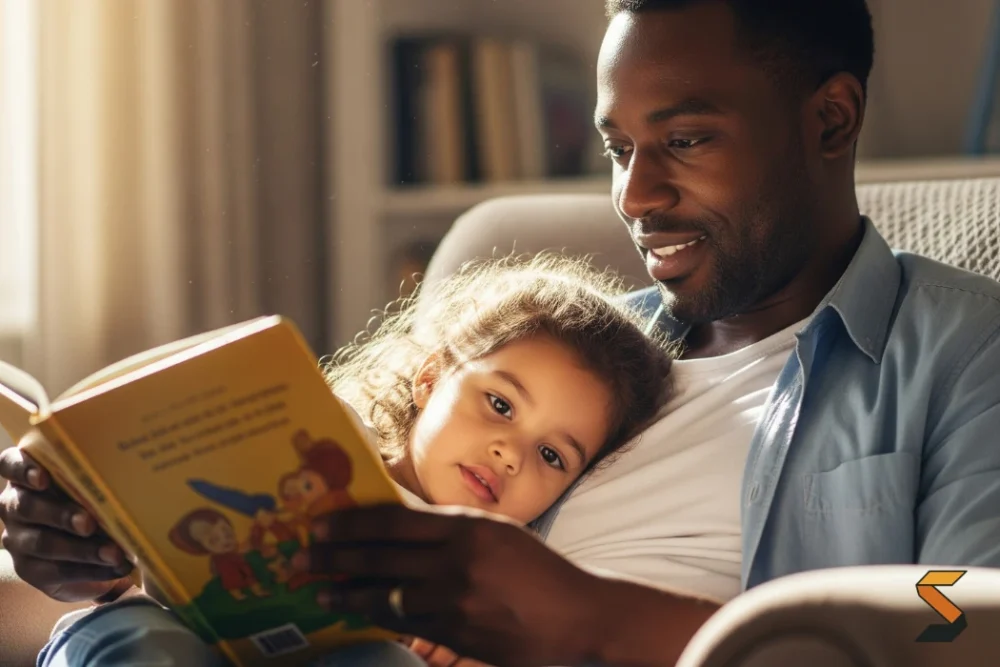Parenthood. It’s a journey filled with unparalleled joy, boundless love, and, let’s be real, moments that test every fiber of your being. We’ve all been there – that split second where your child’s seemingly innocent action pushes you to the brink, and you feel that familiar surge of frustration rising. I remember a particularly trying day with my then-toddler, Jai. We were in the middle of preparing dinner, and he decided the perfect time to explore his artistic talents was with a permanent marker… on our brand-new white couch. My first instinct? A shout, a stern lecture, and a flurry of “why would you do that?!” Instead, I took a deep breath, remembered a similar mishap from my own childhood, and somehow managed a calm, “Let’s see how we can fix this.” It wasn’t easy, but the difference in his reaction and mine was wholehearted.
Similarly, my neighbor, Aisha, a phenomenal single mother of two, recently shared a story about her son, Jamal, who has a knack for epic meltdowns right before school. “There was this one morning,” she recounted, “he refused to wear the shirt I laid out, then threw his breakfast on the floor, all because his favorite superhero wasn’t on the cereal box. My initial thought was to just throw my hands up and walk away. But I pictured myself on the evening news, the ‘Angry Mom’ segment, and it forced me to pause. Instead of yelling, I knelt down, looked him in the eye, and quietly said, ‘Jamal, we can find another shirt, but we need to eat so we can get to school on time.’ It wasn’t magic, but it de-escalated the situation, and we ended up laughing about it later.”
These moments, these tiny triumphs of self-control, are the bedrock of patient parenting. It’s not about being perfect; it’s about making a conscious effort to grow. Patient parents, as research consistently shows, often raise happier, more resilient, and better-adjusted children. The ripple effect is undeniable: your patience models patience for your children, fostering a cycle of calm and understanding that extends to their interactions with others, and even, dare I say, to your future grandchildren. Investing in your patience isn’t just for you; it’s a gift to your entire family.
Cultivating Calm: Strategies for a More Patient Parental Journey
So, how do we, as parents navigating the beautiful chaos of family life, cultivate this invaluable trait? It takes intention, practice, and a willingness to reflect. Here are some powerful strategies to help you on your journey to becoming a more patient parent:
Envision Your Audience: The Invisible Mirror
This isn’t about putting on a performance for social media, but rather an internal visualization technique. Imagine that someone you deeply respect – perhaps a mentor, your own parent, or even a future version of your child looking back – is observing your interaction. This mental exercise can act as a powerful governor on your immediate impulses. When my son was having a full-blown tantrum in the grocery store aisle because he couldn’t have a candy bar, I internally pictured my grandmother, a woman of immense grace and composure, watching me. Suddenly, the urge to snap dissipated, replaced by a deep breath and a calmer approach to redirecting Nia’s attention. This isn’t about shame; it’s about holding yourself to a higher standard of conduct, knowing that your children are always watching and absorbing your reactions.
Step Back in Time: Reconnect with Your Inner Child
It’s incredibly easy to forget the world through a child’s eyes. We’ve been adults for so long, burdened by responsibilities and the complexities of life, that we lose touch with the simple logic (or delightful illogicality) of childhood. Remember that time you accidentally broke a prized possession and felt the world crumbling around you? Or the intense desire for that one toy you just had to have? When your child is distraught over a seemingly minor issue, a dropped cookie or a broken crayon, try to genuinely recall the intensity of childhood emotions. This empathy can be a profound source of patience. It allows you to see their “big deal” as truly a big deal to them, rather than dismissing it as trivial.
Strategic Retreat: Give Yourself a Moment
Sometimes, the wisest move isn’t to power through but to strategically disengage. When you feel that familiar heat rising, and your voice starting to escalate, it’s a clear signal to hit the pause button. “Mommy needs five minutes to make a phone call,” or “I’m just going to step into the other room for a moment.” This isn’t abandonment; it’s self-preservation and a vital lesson for your child on managing overwhelming emotions. Use those few minutes to breathe deeply, re-center yourself, or even splash some cold water on your face. You’ll be amazed at how much more calmly and effectively you can re-engage with the situation once you’ve had a chance to collect your thoughts.
Beyond the Moment: Teaching for Tomorrow
Every challenging interaction with your child is a teaching opportunity disguised as a crisis. Children aren’t born knowing how to regulate their emotions, manage frustration, or understand consequences. You are their primary educator in these critical life skills. When a meltdown occurs, instead of just reacting to the immediate behavior, consider the long-term lesson. Could this be an opportunity to teach problem-solving? Empathy? Or perhaps, as in Nia’s marker mishap, the importance of asking for permission or understanding boundaries? By demonstrating patience in a tough moment, you’re not just reacting; you’re actively modeling the very behavior you want your children to internalize. Discuss how they can use similar calming techniques for themselves when they feel overwhelmed.
The Post-Game Analysis: Reflect and Reinforce
Once the storm has passed and calm has returned, take a few moments for self-reflection. This isn’t about self-recrimination, but about constructive learning. Ask yourself: “How could I have handled that differently? What worked well? What didn’t?” Then, critically, visualize yourself responding to that exact situation with the desired level of patience and calm. This mental rehearsal, repeatedly practiced, is incredibly powerful. Neuroplasticity, the brain’s ability to reorganize itself by forming new neural connections, suggests that this kind of mental rehearsal can actually “reprogram” your automatic responses over time, leading to more patient reactions in the future.
The Grand Tapestry: Maintaining Perspective
Let’s face it: children are inherently unpredictable, and their emotional regulation is still very much under construction. Your five-year-old might indeed throw themselves on the floor of Target because they can’t have a toy. Your teenager might slam a door because you asked them to clean their room. As adults, we’ve learned to (mostly) keep our more primal urges in check. Children haven’t. Keeping the “big picture” in mind means acknowledging that these moments, while intense, are often fleeting and part of normal developmental stages. This isn’t personal; it’s just childhood. Reminding yourself of this broader context can help you avoid taking their behavior personally and, consequently, prevent an overreaction.
Breath and Count: Your Instant Calm Toolkit
The simple acts of counting to ten or taking ten deep, deliberate breaths are not old wives’ tales; they are scientifically proven methods to activate your parasympathetic nervous system, which is responsible for “rest and digest” rather than “fight or flight.” When you feel that surge of anger or frustration, consciously engaging in these actions can literally re-route your physiological response. If you count aloud, it also serves as a subtle signal to your children that a “calm-down” moment is underway, often prompting them to adjust their own behavior or, wisely, give you some space. It’s a powerful and immediate way to interrupt the cycle of reactivity.
The Patience Proclamation: Setting Your Daily Intention
Intentionality is a powerful force. Start each day with a conscious goal: “Today, I will strive to be a more patient person.” Don’t limit this goal to just parenting. Practice patience with the slow cashier at the grocery store, the rude driver in traffic, or the colleague who’s running late. Patience is a muscle; the more you exercise it in all areas of your life, the stronger it becomes. When you cultivate patience as a general life principle, it naturally spills over into your parenting, making it less of an effortful act and more of an ingrained way of being. Having a clear goal provides a target, focusing your mind and actions toward its achievement.
Patience isn’t an innate quality reserved for a select few; it’s a skill, a muscle that can be strengthened with consistent effort and self-awareness. It’s a journey, not a destination, filled with missteps and triumphs. But by embracing these strategies, by intentionally practicing pause and perspective, you’ll not only find more calm within yourself but also discover that your relationship with your children blossoms in profound and beautiful ways. What steps will you take today to embrace a more patient parenting journey?





